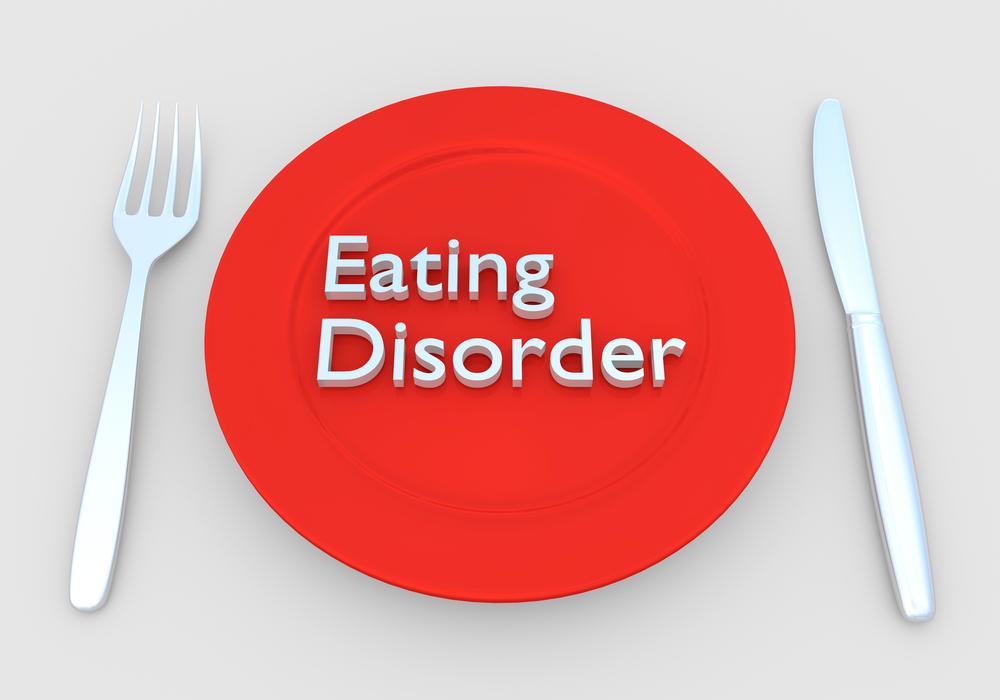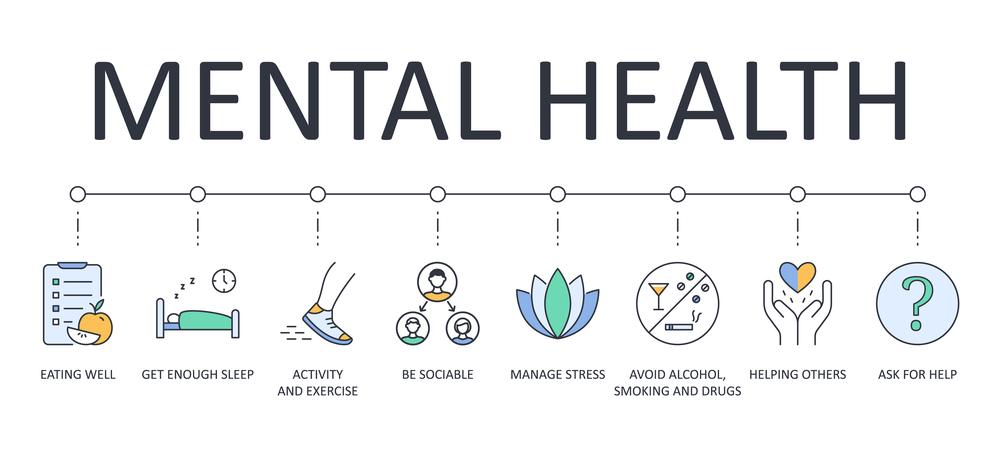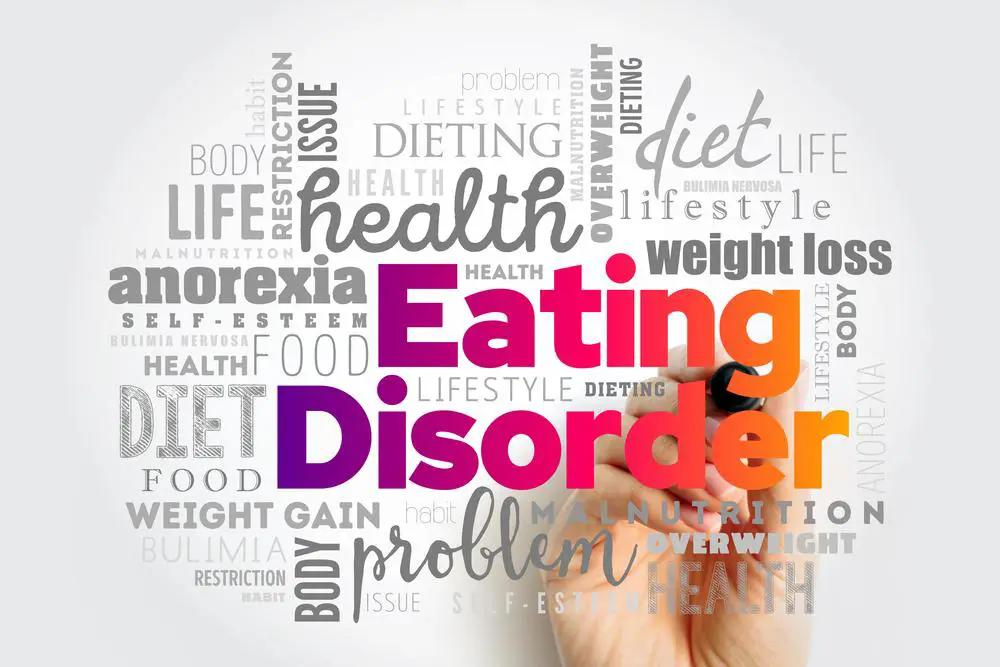As a BetterHelp affiliate, we receive compensation from BetterHelp if you purchase products or services through the links provided
Eating disorders, a group of complex mental health conditions, have a significant impact on an individual’s well-being, affecting both their physical and emotional health. A common question that arises is whether an eating disorder can be considered a disability. This is particularly relevant for individuals seeking assistance, accommodations, or benefits related to their condition.
The answer to this question lies in defining a disability under various legal frameworks, such as the Americans with Disabilities Act (ADA). Disabilities may be classified based on whether they cause substantial limitations in major life activities. Hence, it is essential to understand the intricate relationship between eating disorders, physical impairments, and mental health, as well as the criteria to prove disability due to an eating disorder.
Key Takeaways
- Eating disorders are complex mental health conditions that impact physical and emotional health.
- A disability classification depends on substantial limitations in major life activities, as defined by legal frameworks, such as the ADA.
- Understanding the relationship between eating disorders, physical impairments, and mental health is crucial to determining disability status.
 Understanding Eating Disorders
Understanding Eating Disorders
Eating disorders are complex mental health conditions that involve disturbances in eating or eating-related behavior, leading to significant impairment in physical and mental health. They come in various forms, and it’s essential to have a basic understanding of the different types.
Anorexia Nervosa: This disorder is characterized by an intense fear of gaining weight and a distorted body image, causing the person to restrict their calorie intake severely. Individuals might engage in excessive exercise or self-induced vomiting to prevent weight gain.
Bulimia Nervosa: Similar to anorexia, individuals with bulimia are preoccupied with their weight and body shape. However, bulimia is marked by episodes of binge eating followed by purging behaviors such as self-induced vomiting, laxative use, fasting, or over-exercising.
Binge Eating Disorder: This disorder is characterized by recurrent episodes of binge eating without the purging behaviors seen in bulimia. Individuals feel a lack of control during these episodes and often experience feelings of guilt and shame after eating.
Avoidant/Restrictive Food Intake Disorder (ARFID): People with ARFID have a persistent failure to meet their nutritional or energy needs, which may be due to a lack of interest in food or difficulties with its sensory qualities (such as taste, texture, or smell). ARFID is not related to the fear of being fat or a distorted body image.
Pica: This is a lesser-known eating disorder where individuals consume non-food substances such as soil, paint, or chalk. Pica can harm health due to the potential ingestion of toxins or the risk of injury to the digestive tract.
Diabulimia: Diabulimia is an eating disorder specific to individuals with type 1 diabetes, characterized by the intentional manipulation of insulin doses to lose weight. This behavior can lead to severe health complications, including diabetic ketoacidosis and nerve damage.
In general, eating disorders are severe conditions that require professional intervention and support. Early detection and treatment can significantly impact long-term recovery, so knowing the signs and symptoms is crucial. If you or someone you know is struggling with an eating disorder, reach out to a healthcare professional for help.
Physical Impact of Eating Disorders
Eating disorders have numerous physical effects on your body, ranging from weight fluctuations to systemic complications. In this section, we will discuss the impact of these disorders on your body and specific health issues that may arise.
Weight Fluctuations
One of the most noticeable effects of eating disorders is the constant fluctuations in weight, which can be either excessive weight loss or gain. As your body mass index (BMI) changes, you may experience various physical symptoms, such as:
- Fatigue
- Weakness
- Dizziness
- Cold intolerance
Systemic Complications
Eating disorders can have severe consequences on your body systems, leading to complications in different organs. Here are some of the most common systemic complications:
- Digestive disorder: Eating disorders can cause a range of digestive issues, from acid reflux to severe constipation. Over time, you might also develop gastrointestinal bleeding, which requires immediate medical attention.
- Anemia: A decrease in red blood cells (RBCs) or hemoglobin in the blood leads to anemia. This condition arises from insufficient nutrient intake, especially iron and vitamin B12, common among individuals with eating disorders.
- Seizures: Electrolyte imbalances resulting from excessive weight loss, purging, or restrictive eating can increase the risk of seizures, even in those with no prior history of neurological problems.
- Heart complications: Eating disorders can damage your cardiovascular system, leading to heart complications like low blood pressure, arrhythmias, and even heart failure. Proper nutrition and a healthy lifestyle are vital for maintaining a healthy heart.
As you can see, the physical impact of eating disorders is significant and potentially life-threatening. It’s essential to seek help if you or someone you know is struggling with an eating disorder to prevent these health issues and promote recovery. Recovering from an eating disorder may not only improve your emotional well-being but also your overall physical health.
 Mental Health and Eating Disorders
Mental Health and Eating Disorders
Eating disorders can have a significant impact on your mental health. They are often accompanied by anxiety, depression, and other mental health conditions that can affect your overall psychological well-being.
One aspect of the relationship between eating disorders and mental health is the way these disorders can impair your mental functioning. For example, when you’re struggling with an eating disorder like anorexia or bulimia, it can be challenging to focus on daily tasks and activities. You might also experience mood swings or feelings of isolation due to the nature of these disorders.
Some of the most common mental disorders related to eating disorders include:
- Depression: This condition can often coexist with an eating disorder, as feelings of hopelessness or worthlessness can trigger disordered eating behaviors.
- Anxiety: Eating disorders can cause high levels of stress and anxiety, making it difficult to manage daily responsibilities and maintain healthy relationships.
- Obsessive-compulsive disorder (OCD): Some individuals with eating disorders may also display obsessive thoughts and repetitive behaviors related to food, exercise, or body weight.
Here are some strategies to support your mental health while dealing with an eating disorder:
- Seek professional help: Reach out to a mental health professional, such as a therapist or psychologist, who specializes in treating eating disorders and related mental health conditions.
- Develop a support network: Build relationships with friends, family, or support groups in your community that understand your struggles and can offer positive reinforcement.
- Establish a self-care routine: Incorporate activities like meditation, journaling, or exercise to help manage your emotions and promote mental well-being.
It’s essential to recognize the connection between eating disorders and mental health to address both your physical and psychological needs. You can achieve a healthier state of mind by implementing the above strategies and seeking appropriate care.
 Proving Disability with Eating Disorders
Proving Disability with Eating Disorders
When you’re trying to prove that your eating disorder is a disability, it’s essential to provide thorough evidence and documentation to support your claim. The Social Security Administration (SSA) reviews your application for Social Security Disability (SSD) benefits or Supplemental Security Income (SSI) based on the severity of your condition and how it impacts your ability to work.
Medical Documentation
The key to proving your disability with an eating disorder lies in the medical documentation you submit. You’ll need to gather records and evidence from various sources, such as general practitioners, specialists, and hospitals. Here are some crucial steps to securing the right medical documentation:
- Consult with healthcare professionals: Regularly consult with your general practitioner, as well as specialists like psychiatrists or therapists, to ensure your diagnosis, treatment progress, and limitations are appropriately documented. The more detailed and up-to-date your records are, the better.
- Get hospital records: If you have been hospitalized or treated in a specialized facility due to your eating disorder, make sure to request copies of those hospital records for your application.
- Collect medical test results: The SSA may require specific medical tests to evaluate the severity of your condition. This can include blood work, brain scans, and heart scans that indicate the impact of the eating disorder on your overall health. Ensure you gather copies of all relevant test results to submit with your application.
- Follow the medical criteria: It’s essential to meet the medical criteria for eating disorders as outlined in the SSA’s Disability Listing. Adhering to these guidelines will ensure that your application is correctly evaluated and stands a better chance of being approved.
- Coordinate with healthcare providers: Keep in constant communication with your healthcare providers to ensure that your medical documentation remains accurate and up-to-date. Inform them about the disability benefits process and seek their assistance in completing forms and providing evidence related to your condition.
Remember, the more comprehensive and detailed your medical documentation is, the more likely it is that your eating disorder will be considered a disability by the SSA. By following these steps and gathering the appropriate records, you can effectively demonstrate the severity of your condition and its impact on your ability to work. Ultimately, this will improve your chances of receiving Social Security Disability benefits or Supplemental Security Income.
 Legal Aspects and Assistance
Legal Aspects and Assistance
Understanding Work Credits
To qualify for disability benefits, you’ll need to meet specific requirements related to your work history. These requirements are based on work credits earned based on your income and age. The number of work credits needed depends on your age when the eating disorder caused you to become disabled. Here are some key points to remember:
- Younger workers: If you’re under 24, you may qualify with as few as six work credits earned within the three years immediately before your disability started.
- Older workers: Generally, if you’re between 24 and 62 years old, you’ll need between 20 and 40 work credits, some of which must have been earned in the ten years before your disability onset.
It’s essential to note that your work credits need to be recent enough to qualify. Consult a knowledgeable attorney or disability lawyer to help you assess your work credits.
Navigating Denials and Appeals
Unfortunately, many initial claims for eating disorder-related disabilities are denied. However, don’t be discouraged. You can pursue several levels of appeal if your claim is denied. Here’s a brief overview of the process:
- Reconsideration: Submit a written request for reconsideration within 60 days of receiving your denial notice. A different disability examiner will review your case, and you may submit additional supporting information, such as medical records or doctor statements.
- Administrative Law Judge (ALJ) Hearing: If reconsideration is unsuccessful, request a hearing before an ALJ. You’ll be able to present your case more comprehensively, with the option of bringing in witnesses and testimony from medical professionals.
- Appeals Council Review: Should the ALJ deny your appeal, you can take your case to the Social Security Appeals Council, which will review the ALJ’s decision for errors or omissions.
- Federal court: If all else fails, you can pursue a lawsuit in federal court.
Each of these steps has its complexities. It’s crucial to work with an experienced attorney or disability lawyer to navigate the process effectively. Remember, time is of the essence when dealing with appeals, so act promptly to increase your chances of success.
 Living with Eating Disorders and Disabilities
Living with Eating Disorders and Disabilities
Living with an eating disorder can have a significant impact on your daily life. The challenges are not just limited to mental health but can also affect individuals with physical disabilities, leading to unique issues you might face.
You might experience limitations due to the disorder, as it may disrupt your eating habits and body image perception. These limitations can influence various aspects of life, including age, work experience, and social interaction. As a result, it’s essential to identify and address specific needs to manage your condition better.
A crucial aspect is balancing a healthy diet and feeding patterns. Working with a registered dietitian or therapist can guide you in developing personalized meal plans and coping strategies for managing your eating disorder and any accompanying physical disabilities. This support will ensure that your nutritional and health requirements are adequately met.
Your environment also plays a substantial role in managing your eating disorder. Surrounding yourself with supportive people who understand your condition helps create a safe space for open conversations. Make an effort to educate your friends and family about your disorder and the struggles you face. Building a strong support system is integral for maintaining progress and recovery.
Adapting to your physical disability can also pose challenges as you manage your eating disorder. Consider utilizing assistive devices and technologies to make feeding and meal prep more accessible. This can ensure that you maintain independence and can participate in your recovery process.
In conclusion, living with eating disorders and disabilities can indeed be challenging, but with the right tools and resources, you can manage your life effectively. Developing healthy habits, reaching out for professional help, and creating a supportive environment will equip you with the means to achieve a better quality of life.
 Frequently Asked Questions
Frequently Asked Questions
Can eating disorders qualify for disability benefits?
Yes, certain severe eating disorders like anorexia nervosa may qualify for disability benefits. If the disorder significantly impacts your ability to work full-time, perform daily activities, and hinder your overall health, you could be eligible for benefits depending on the severity and duration of the condition.
Are all types of eating disorders considered disabilities?
Not all eating disorders are automatically considered disabilities. Each case is evaluated individually to determine the level of impact on your daily functioning and health. The most common eating disorders that may be classified as disabilities are anorexia nervosa, bulimia, and binge-eating disorder.
How does an eating disorder affect daily functioning?
An eating disorder can significantly disrupt daily activities and deteriorate a person’s physical and mental health. Common effects include excessive preoccupation with food, weight, and body shape; engaging in unhealthy behaviors like self-induced vomiting, excessive exercise, and abuse of laxatives, diuretics, or diet pills; and experiencing adverse side effects such as yellowish skin, constipation, weakness, and dizziness. Social and emotional well-being can also be impacted, leading to isolation, depression, or anxiety.
What criteria must be met for an eating disorder to be classified as a disability?
To classify an eating disorder as a disability, the individual must demonstrate that the condition has:
- Significantly impacted their daily functioning and ability to work full-time
- Persisted for a considerable period, typically at least 12 months
- Led to severe health issues that cannot be remedied through simple lifestyle changes or treatment
Medical documentation and evidence must be provided to support the individual’s claims.
Is there legal protection for individuals with eating disorders as disabilities?
Yes, individuals with severe eating disorders who meet the criteria for disability are covered under legal protection. For example, in the United States, people with recognized disabilities are protected under the Americans with Disabilities Act (ADA), which prohibits discrimination and ensures equal opportunities in various aspects of life, including employment, education, transportation, and public services.
Can one request accommodations at work or school for an eating disorder?
Absolutely. If your eating disorder qualifies as a disability, you have the right to request reasonable accommodations to help you succeed in your job or education. This can include adjustments to work schedules to accommodate appointments, dietary support, or other personalized arrangements. Communicating your needs and working with your employer or school to determine the best course of action for your situation is essential.
Remember to be open, honest, and proactive about seeking support for your eating disorder, and be prepared to provide medical documentation to validate your condition when necessary.
About Jacob Maslow
After surviving the traumatizing events of 9/11, I took it upon myself to heal through helping others. I’m the primary caregiver of my children and understand from first-hand experience the lonely paths you have to walk as a partner and parent when leaving an unhealthy relationship.
We’re all echoing in a dark space that doesn’t have to be this empty, and that’s been my mission since finding solace and recovery in therapy: To help comfort others who are still in shock and at the prime of their struggle.
I came across BetterHelp after searching for this type of community. I wanted to belong to a body of proactive therapists and supportive therapy veterans who allowed me to see other sides of the story.
It was unconventional, and that’s what attracted me most. During my most challenging times, when my ex-wife completely cut me off from my children, I found comfort and clarity through BetterHelp.
Instead of being chained to a strict therapist recommendation, I was in charge of who I felt understood my struggle most. That allowed me to find my true peace, as I was reunited with those who read behind my words and had first-hand experience with my trauma.
Recovery is a choice; with BetterHelp, that choice will be a few clicks away. You can join their couples-oriented platform, Regain.us, for those stuck with family estrangement and toxic relationship patterns.
- 3 Ways Wearing a Hat Can Help Lower Your Stress Levels - April 19, 2025
- Breaking the Silence: Why Men’s Mental Health Matters More Than Ever - April 15, 2025
- How to Transform a Home’s Patio Space into a Relaxing Space - March 23, 2025
This site contains affiliate links to products. We will receive a commission for purchases made through these links.


 Understanding Eating Disorders
Understanding Eating Disorders Mental Health and Eating Disorders
Mental Health and Eating Disorders Proving Disability with Eating Disorders
Proving Disability with Eating Disorders Legal Aspects and Assistance
Legal Aspects and Assistance Living with Eating Disorders and Disabilities
Living with Eating Disorders and Disabilities Frequently Asked Questions
Frequently Asked Questions
